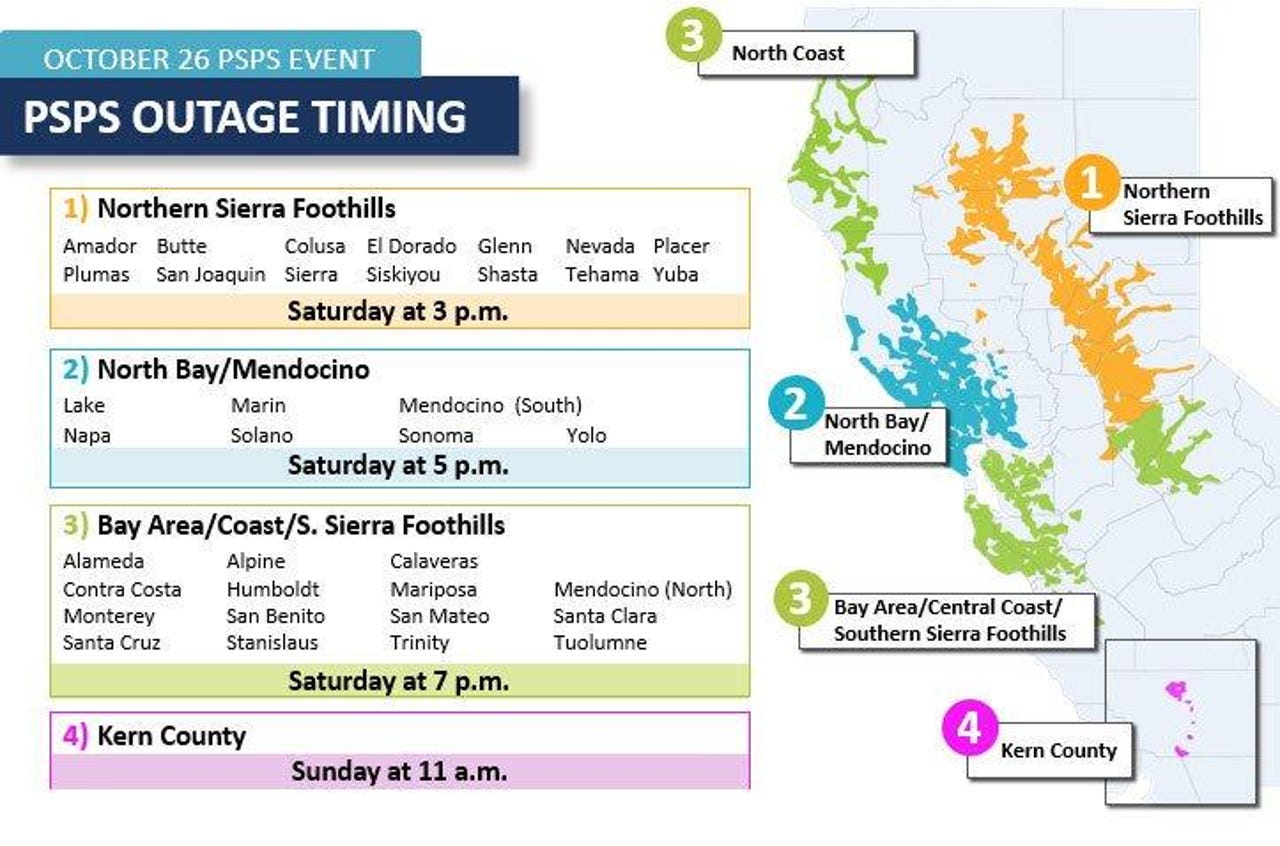Top tips for surviving a power blackout


PG&E blackout map
Millions of Californians could find themselves without power as power companies warn that they might have to pull the plug on hundreds of thousands of homes in order to prevent power lines from starting wildfires during a windstorm.
But being without power means living without a lot of things, from hot food to communication, and while tech can't turn your power back on, it can help.
Must read: Forget the smartphone. Get yourself a satellite phone that will work anywhere on the planet
Tip #1: Keep everything charged up
While the power is on, use that time to keep everything -- laptops, smartphones, tablets, and power banks -- charged up.
Tip #2: Turn devices off when not in use
The best way to keep a device charged up is to turn it off.
Tip #3: Use Battery Saver/Low Power Mode for devices that you leave on
This feature will allow you to get the best lifespan from the devices that you may have to leave switched on.
Tip #4: Consider alternative power supplies
If you read this, you probably have a power bank or two nearby, but you might also have other power supplies, especially for charging up electronic devices. For example, maybe you have an in-car charger (good idea to keep your gas tank filled up), or maybe you have a solar charger. There are also a number of power banks that also feature an AC outlet.
Perhaps you have a gasoline generator that you can fire up, although I would urge caution if you're not familiar with this bit of kit, because they offer a huge and bewildering number of ways to hurt, maim, or even kill you or others, so safety first!
Tip #5: Check replaceable batteries
If you have devices that use regular batteries, then a stock of disposable batteries in the size you use could come in handy.
Tip #6: Know how to operate things without power
For example, know how to open your garage door. Look around you now, and start planning.
Tip #7: Plan for medical needs
If you or a friend or loved one relies on a breathing machine, a power wheelchair or scooter, home oxygen, or dialysis, have a plan in place.
Tip #8: Have hard copies of important information
Don't rely on having phone numbers in your phone, because once the battery dies, you will be in trouble. Write them down!
#9: Have a stockpile of food and water
This goes without saying. Having ice is also good for keeping food fresh.
See also:
- iOS 13: New features you might have missed
- iOS 13 battery life bad? Top tips to fix battery drain issues
- Study shows that majority of second-hand hard drives contain previous owner's data
- Must-have productivity apps and accessories for the iPad Pro
- Best iOS apps (September 2019 edition)
- Does the iPhone 11 have a hidden feature waiting to be activated?
- When is Android 10 coming to my phone?